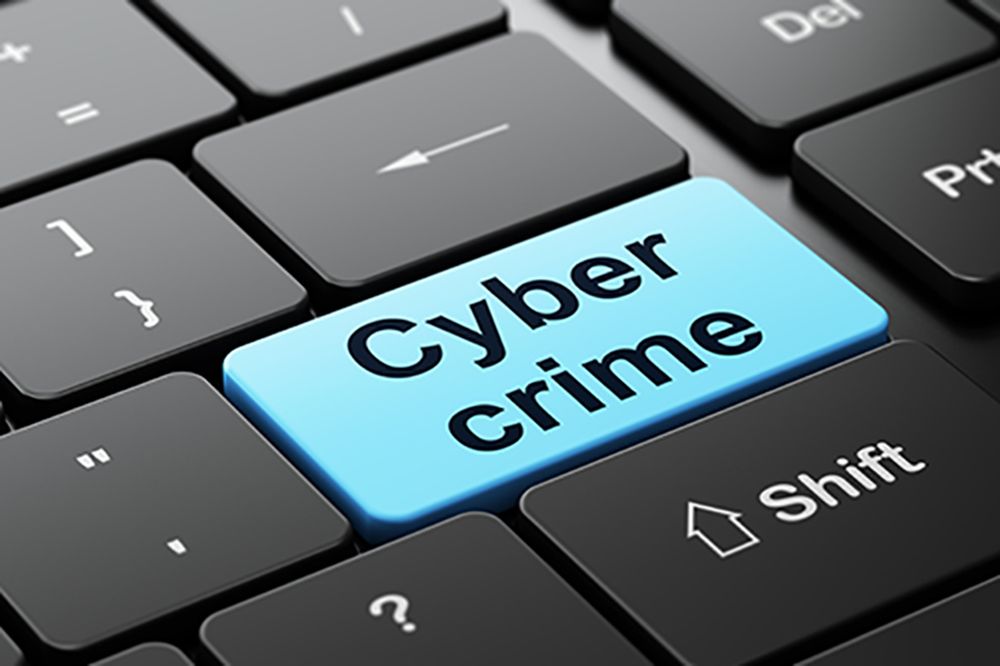CYBER CRIME
As the technology development happens even hacking system develops day today we use various kinds of gadgets like laptops ,mobiles computer and we never think whether it harms our privacy or not Criminal activity (such as fraud, theft, or
distribution of child pornography) committed using a computer especially to illegally access, transmit, or manipulate data The growing number of mobile devices, such as phones and tablets, and the popularity of social networks give them new avenues in which to expand their (According to Dictionary) Internet in India is growing rapidly .Unrestricted no. of free websites, the Internet has deniably Opened a new exploitation known as cybercrime
Activates involve the use of computer, Internet, Cyberspace And the link starts with WWW 1st recorded cybercrime took place in the year 1820. Indian corporate and government sites have been attacked or. Defaced more than 780 times between Feb 2002 & Dec 2002 .3,286 Indian websites were hacked in 5months – between. Jan & June 2009
How Cyber Crime occurs Cybercriminals may infect computers with
viruses and malware to damage devices or stop them working. They may also use malware to
delete or steal data. .. Cybercrime that uses computers to commit other crimes may involve using computers or networks to spread malware, illegal information or illegal images. criminals are always on a lookout for ways to make huge money through easy approaches. .
Easy Access System.
Storing Data in a Small Space Complex Negligence Negligence. Loss of Evidence. Evolution of Cyber Crime.
Most cybercrime is an attack on information about individuals, corporations, or governments. Although the attacks do not take
place on a physical body, they do take place on the personal or corporate virtual body, which is the set of informational attributes that define people and institutions on the Internet.
TYPES OF CYPER CRIME
Phishing :- fraudulent practice of sending e-mails purporting to be from reputable
companies” to trick people into revealing their credit-card details.
Identifying theft:-Identity theft is the crime of obtaining the personal or financial information of another person to use their identity to commit fraud, such as making unauthorized transactions or purchases Security Hackers:-Hacking refers to the misuse of devices like computers, smartphones, tablets, and networks to cause damage to or corrupt systems, gather information on users, steal data and documents, or disrupt data- related activity.
Malware:-Malware is intrusive software that is designed to damage and destroy computers and computer systems. Malware is a contraction for “malicious software.” Cyber stalking:-Cyberstalking refers to the use of the internet and other technologies to harass or stalk another person online, and is potentially a crime in the United States.
Cyber terrorism:-Cyber terrorism is a global issue which is one of the most ignored & underestimated issue considered in India. ..
The over dependency over the internet increase the vulnerabilities & transformed their aggressions into feeling of revenge, which turned them criminals, Cyber warriors and hostility to the country.
Cyber bulling:-Cyberbullying is bullying that takes place over digital devices like cell phones, computers, and tablets. Cyberbullying can occur through SMS, Text, and apps, or online in social media, forums, or gaming where people can view, participate in, or share content.
Botnet:-A botnet is a form of malware that involves an inter-connected network of hacked computers that lead back to a centralized computer controlled by a cyber criminal, who can then easily deploy cyber attacks to the
entire network.
Computer virus:-A computer virus, much like a flu virus, is designed to spread from host to host and has the ability to replicate itself. Similarly, in the same way that flu viruses cannot reproduce without a host cell, computer viruses cannot reproduce and spread without programming such as a file or document Denial-of-service attack:-A denial-of-service (DoS) attack is a security threat that occurs when an attacker makes it impossible for legitimate users to access computer systems,
network, services or other information technology (IT) resources. Attackers in these types of attacks typically flood web servers, systems or networks with traffic that overwhelms the victim’s resources and makes it difficult or impossible for anyone else to access them.
Logic bomb:-A logic bomb is a string of malicious code inserted intentionally into a program to harm a network when certain
conditions are met. The term comes from the idea that the code “explodes” when triggered by a specific event, such as a certain date or time, the deletion of a particular record Email spoofing:-Email spoofing is the act of sending emails with a forged sender address. It tricks the recipient into thinking that someone they know or trust sent them the email.
Usually, it’s a tool of a phishing attack, designed to take over your online accounts, send malware, or steal funds.
Cross-site scripts:-In a Cross-site Scripting attack (XSS), the attacker uses your vulnerable web page to deliver malicious JavaScript to your user. The user’s browser executes this malicious JavaScript on the user’s computer. Note that about one in three websites is vulnerable to Cross-site scripting.
Financial Cyber crime :-Financial cybercrime includes activities such as stealing payment card information, gaining access to financial accounts in order to initiate unauthorized transactions, extortion, identity fraud in order to apply for financial products, and so on.
11 tips to get prevented from Cyber Crime.
1.Use strong password
2. Secure your computer
3. Protect your mobile device
4.Avoid being scammed
5. Secure your wireless network
6.Manage social media settings
7. Call right person for the help
8. Keep your software updated
9.Download full security service internet
10. using technology much
11. awareness about cyber crime
Law against Cyber crime: The Act gives legal validity to electronic contracts, recognition of electronic signatures. This is a modern legislation which makes acts like hacking, data theft, spreading of virus, identity theft, defamation (sending offensive
messages) pornography, child pornography, cyber terrorism, a criminal offence. The punishments under these provisions are
different based upon the gravity of the committed cybercrime. Section 419 carries a punishment up to 3 years of imprisonment or fine and Section 420 carries up to 7 years of imprisonment or fine.
Conclusion:
Cybercrime is indeed getting the recognition it Deserves. However, it is not going to restricted That easily . In fact, it is highly likely that cyber Crime and its hackers will continue developing And upgrading to stay ahead of the law.
Hence, we must use less technology whereas we must spend our time with our family and friends even though technology is a part of our daily we must avoid it for some extent.
Written By: Jennifer (Internship )
#indinamediacouncil

